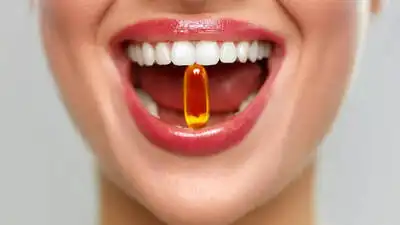Vitamin D, often known as the ‘sunshine vitamin’, is essential for strong bones, immune function, and overall health. While natural sources of this nutrient cannot overload your system, taking supplements can. Taking too much vitamin D can lead to serious health issues, including kidney toxicity. Here’s everything you need to know about vitamin D, its doses, and toxicity.
What is Vitamin D
Vitamin D is a fat-soluble nutrient that mainly exists in two forms: Vitamin D2 (ergocalciferol), and Vitamin D3 (cholecalciferol). Vitamin D is an essential nutrient that plays a crucial role in the body. It helps in calcium absorption, and thereby promotes bone health and prevents conditions like osteoporosis. This nutrient also supports immune system function and potentially reduces the risk of infections and chronic diseases, including autoimmune diseases and certain cancers.
Video How to get vitamin D naturally
Our body produces vitamin D naturally when exposed to sunlight. When the skin is exposed to sunlight, specifically ultraviolet B (UVB) rays, it triggers a process where the skin makes vitamin D3, which is then converted by the liver and kidneys into its active form to support bone and immune health. You can also turn to dietary sources such as animal-based foods like fatty fish, egg yolks, and fortified dairy for vitamin D.
How much vitamin D do you need
When sun exposure and dietary intake fall short, supplements may be recommended by doctors. According to current ,consuming 400–800 International Units (IU), or 10–20 micrograms (mcg), of vitamin D should meet the needs of 97%–98% of all healthy people, with an upper limit of 4,000 IU (100 mcg) set by the National Institutes of Health (NIH). Exceeding this upper limit can lead to vitamin D toxicity, also known as hypervitaminosis D, a rare but serious condition.
What is vitamin D toxicity
Vitamin D toxicity occurs when the levels of this nutrient is so high. Also known as hypervitaminosis D, this condition can cause serious health issues. As vitamin D is fat-soluble, the body doesnot has easy way to eliminate fat-soluble vitamins. As a result, excessive amounts may build up in your body. The excess amounts accumulate in the body, particularly in the liver and fat tissues. This can put more stress on normal physiological processes, with the kidneys being especially vulnerable.
